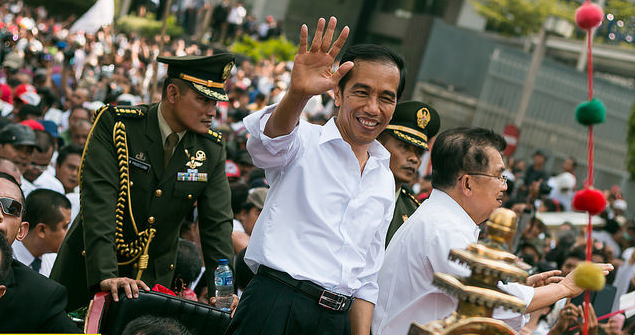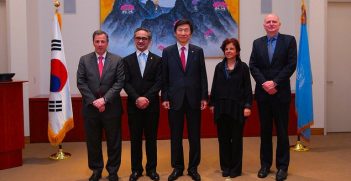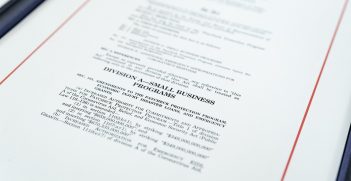Jokowi’s Failure at Appeasing Indonesia

Indonesia’s President Jokowi faces a challenging balancing act in his effort to appease rival factions.
Despite Australian politics being rather interesting of late, I often find myself drawn to Indonesia’s fascinating political landscape.
Take, for example, the plummeting popularity of Indonesia’s president, Joko Widodo. From a seemingly unassailable position at the start of the Indonesian presidential campaign, Jokowi’s popularity has steadily eroded to the point that his presidency has been threatened with impeachment. This spectacular plummet in Jokowi’s popularity leaves some wondering ‘under what circumstances has this occurred?’
Jokowi’s Decline
Part of the reason for Jokowi’s decline in popularity is that he tries to balance the vested interests of too many political factions, without a stable political base.
Jokowi is not in control of his own political party, the Indonesian Democratic Party of Struggle (PDI-P), let alone his ruling coalition, the Awesome Indonesia Coalition. This means that Jokowi is compelled to overly consider the wishes of influential political factions, his own included, and is sometimes blocked from making controversial political decisions because of an absence of clear political authority. As a result of Jokowi’s less than satisfactory performance in juggling these interests, his popularity has declined dramatically.
The controversy surrounding the appointment of Budi Gunawan, a suspect of the Corruption Eradication Commission (KPK), as the national police chief is a good example of the hazardous balancing act that Jokowi is playing. In what may appear to be a reward for party loyalty, Jokowi’s decision to nominate Budi as the sole candidate for the Chief of Police also reeks of influence by elements in the PDI-P controlled by the party chief, Megawatai Sukarno Putri.
This decision aggravated the KPK, who sighted possible instances of corruption by Budi, and has resulted in a highly controversial tit for tat exchange between the police, the PDI-P, and the KPK, which Jokowi is yet to resolve.
The outcome of this exchange will likely be seen as a litmus test for Jokowi’s capability to make political decisions, independent of Indonesia’s elite, and in the interest of the Indonesian people. Whichever route Jokowi decides to take, he will risk alienation from either group.
If Jokowi decides to keep Budi as Police Chief, his position in regard to anti cronyism and anti patrimony politics will likely be compromised. Whereas, if he decides to appoint a new police chief, Jokowi will likely lose support from his party and perhaps a sizable part of the police, too.
Foundations soon to be lost?
Jokowi is thus torn between the wishes of his party, the PDI-P and the police on the one side, with the media, the KPK and his populist supporters on the other.
Irrespective of his decision, Jokowi will likely draw criticism and risk losing the support of at least one of these influential groups – a much-needed foundation of support for his political authority.
Similarity with Sukarno’s Demise?
Interestingly, Jokowi’s inability to balance the vested interests of opposing groups was also shared by Indonesia’s first and near mythical President, Sukarno. During his tenureship, Sukarno unsuccessfully tried to balance the interests of his many support bases – the military, the Indonesian communist party and Indonesia’s religious establishments – resulting in his slow and steady demise from power following the events of Gerakan 30 September, in 1965.
Whilst Jokowi seems to want to emulate Sukarno in many ways, it is obvious that he would not like to be ousted from his presidency in a similar fashion – through a crisis of political authority.
However, if Jokowi will not act upon his previous rhetoric of anticorruption and anti horse trading, he risks losing the main source of his political authority – Indonesians who wants to see the end of patrimony, corruption and cronyism in Indonesia. It is perhaps of no coincidence that this is perhaps exactly what the ruling Indonesian elite would want, as Jokowi could be a considered threat to their entrenched rule of power.
Andrew Catton is a former intern at the Australian Institute of International Affairs National Office. This article can be republished with attribution under a Creative Commons Licence.





